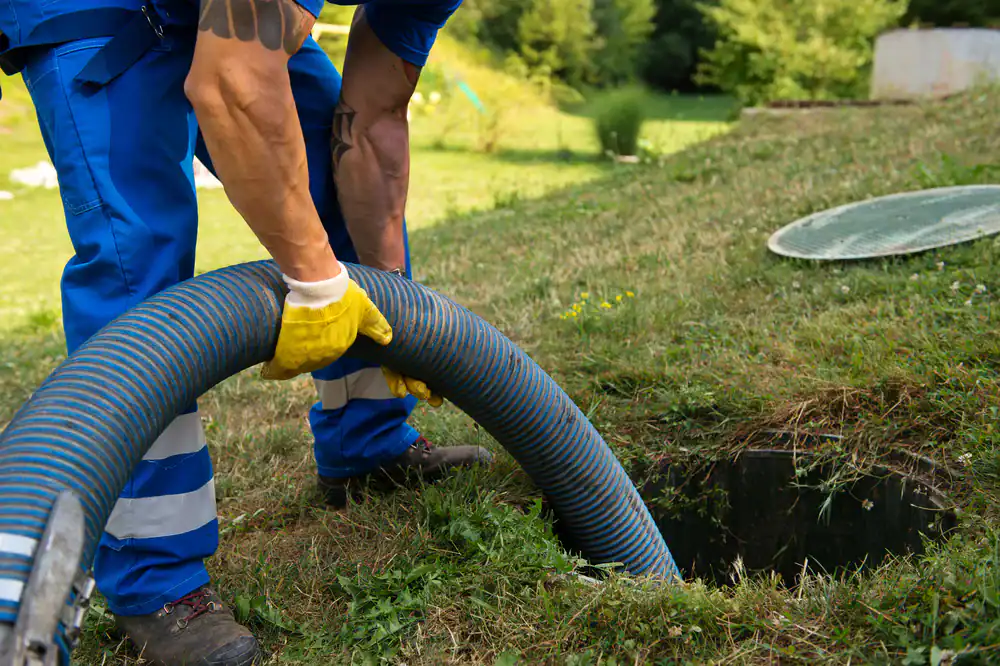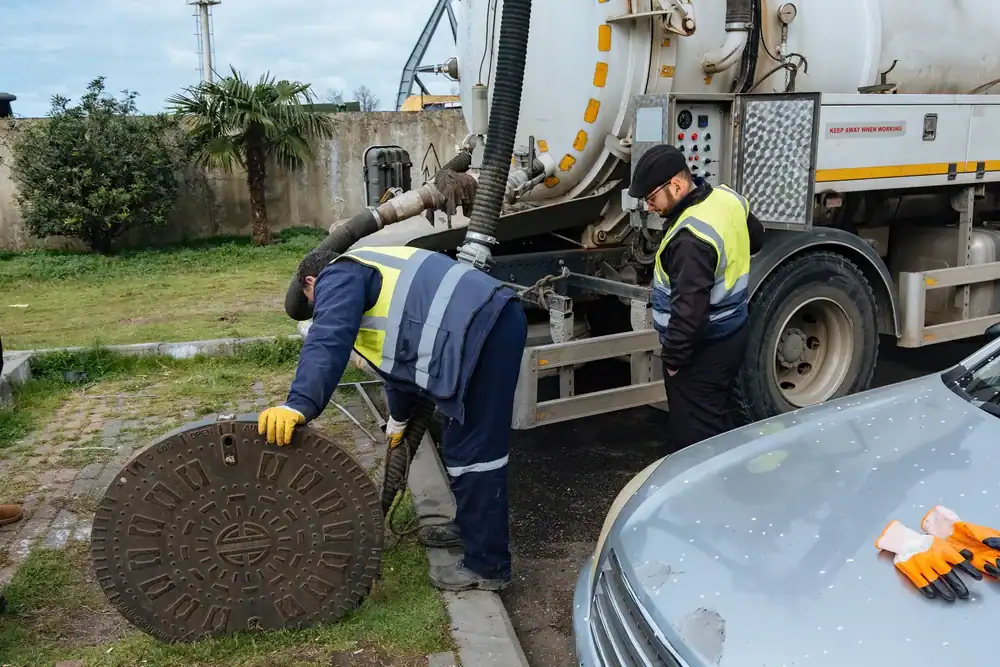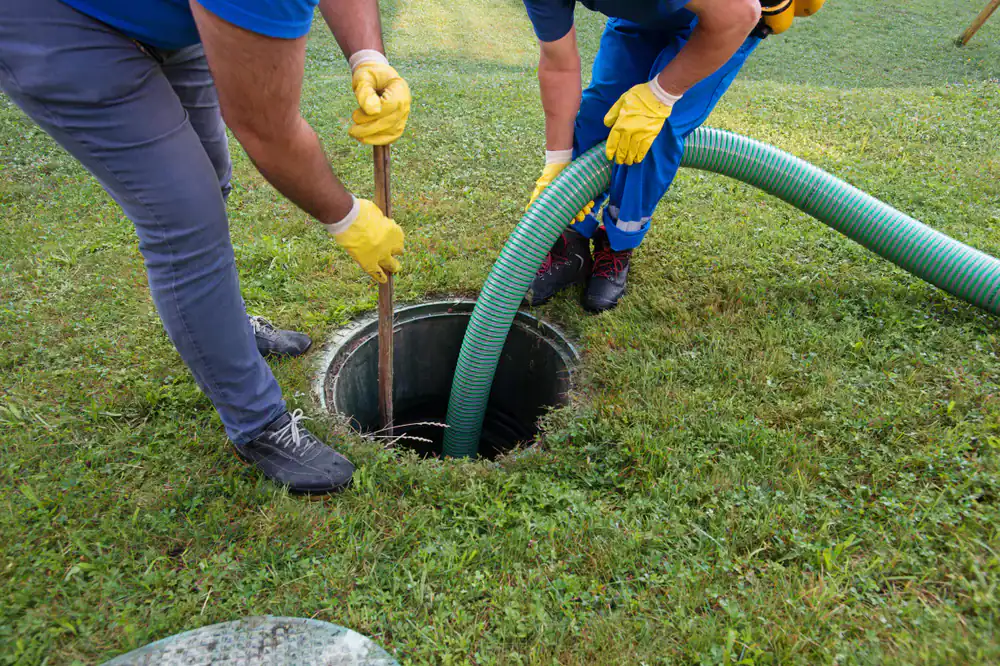
Our Reviews

When your septic system fails, everything stops. You can’t use your sinks, toilets, or drains normally. Raw sewage might back up into your home or pool in your yard.
We handle septic emergencies fast because we know what’s at stake. Your family’s health. Your property’s value. Your peace of mind.
Once we fix the problem, you’ll have a properly functioning septic system that handles wastewater safely and efficiently. No more backups, no more odors, no more standing water where it shouldn’t be. Just a system that works the way it should, protecting your home and your family’s health.
All Rooter Hydro Jetting Experts Inc. has been serving the St. Charles area and greater Chicagoland region with reliable septic tank plumbing services. We’re licensed, bonded, and insured, which means you’re protected when we work on your property.
We understand the unique challenges of septic systems in Illinois. The clay soil, the freeze-thaw cycles, the way systems age in this climate—we’ve seen it all. That local knowledge makes a difference when diagnosing problems and recommending solutions.
You’ll get upfront pricing before we start any work. No surprises, no inflated bills after the job is done. Just honest pricing for professional septic services when you need them most.

First, we assess your septic emergency. We’ll locate your tank, check the drain field, and identify where the problem is coming from. Most septic issues fall into a few categories: clogs in the lines, tank problems, or drain field failures.
Next, we explain what we found and what it’ll cost to fix it. You’ll know the price before we start any work. No guessing, no surprise charges later.
Then we get to work. For clogs, we use hydro jetting to clear blockages completely. For tank issues, we’ll pump, clean, or repair as needed. Drain field problems require more extensive work, but we’ll walk you through every step. Most repairs are completed the same day, getting your system back online fast.

Ready to get started?
Our septic tank plumbing services cover the full range of problems you might face. Emergency septic repairs when sewage backs up into your home. Septic line clog repair using professional hydro jetting equipment. Drain field restoration when the soil can’t absorb wastewater properly.
In St. Charles, we see specific patterns. Older systems installed in the 1980s and 1990s often need drain field work. Clay soil can cause drainage problems that require professional solutions. Winter freeze-ups can crack pipes or damage tank components.
We handle it all with the same approach: diagnose the real problem, explain your options clearly, and fix it right the first time. You’re not just getting a quick patch—you’re getting a solution that addresses the root cause and prevents future problems.

Raw sewage backing up into your home is the clearest emergency sign. You might also notice sewage pooling in your yard, especially around the septic tank or drain field area.
Other warning signs include toilets that won’t flush properly, sinks and tubs that drain very slowly, and strong sewage odors inside or outside your home. If you hear gurgling sounds when water drains, that often means the system is struggling to handle wastewater.
Don’t wait if you’re seeing these signs. Septic emergencies get worse quickly and can create serious health hazards for your family.
Clay soil is the biggest culprit in this area. St. Charles sits on dense clay that doesn’t absorb water well, which puts extra stress on drain fields over time.
Heavy rains can saturate the soil, preventing it from accepting more wastewater from your septic system. This causes backups and system failures. Age is another factor—drain fields typically last 15-25 years before needing restoration or replacement.
Tree roots also cause problems by growing into the drain field pipes, blocking the flow of effluent. We see this frequently with older systems where trees have grown larger since the original installation.
Most septic line clogs can be cleared using hydro jetting, which doesn’t require excavation. We insert high-pressure water equipment through existing access points to blast away blockages.
Hydro jetting removes grease buildup, soap scum, and debris that accumulates in septic lines over time. It’s more thorough than traditional snaking and less invasive than digging up pipes.
However, if the pipes are broken or collapsed, excavation might be necessary. We’ll use camera inspection to determine the exact problem before recommending the best approach for your situation.
Most residential septic tanks in Illinois should be pumped every 3-5 years, depending on household size and usage patterns. Larger families or homes with garbage disposals may need more frequent pumping.
Illinois soil conditions can affect pumping frequency. Clay soil doesn’t filter wastewater as effectively as sandy soil, which can lead to faster accumulation of solids in the tank.
Signs you need pumping include slow drains throughout the house, sewage odors, or standing water around the septic tank area. Don’t wait for these warning signs—regular pumping prevents expensive emergency repairs.
Pumping removes the liquid and floating scum from your septic tank, but it doesn’t address the solid sludge layer at the bottom. This basic service costs less but doesn’t fully restore tank capacity.
Cleaning involves pumping out all contents—liquids, scum, and sludge—then pressure washing the tank interior. This more thorough process removes buildup from the tank walls and ensures maximum storage capacity.
We typically recommend full cleaning rather than just pumping because it extends the time between services and helps prevent system failures. The cost difference is minimal compared to the benefits of complete tank restoration.
Yes, we provide 24/7 emergency septic services throughout St. Charles and the surrounding areas. Septic emergencies don’t wait for business hours, and neither do we.
Emergency situations include sewage backups into your home, complete system failures, or any situation where wastewater isn’t being handled safely. We understand these problems create health hazards and need immediate attention.
Our emergency response includes initial assessment, temporary solutions if needed, and permanent repairs. We carry the equipment and parts needed for most common septic emergencies, so we can often resolve problems the same day we’re called.